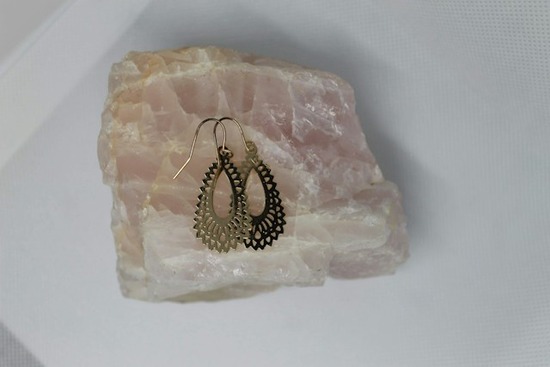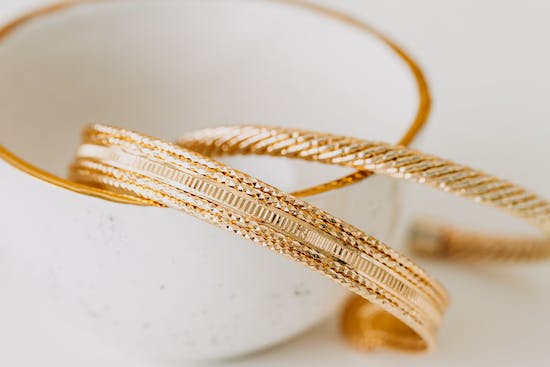Jewelry—Why Do Many Seventh-day Adventists Choose Not to Wear It?
If you walk into a Seventh-day Adventist church service, you might notice that many people aren’t wearing earrings, bracelets, necklaces, or sometimes even wedding rings. It’s common in Adventist communities to forego these external flourishes, often referencing the principle behind 1 Peter 3:3-4, which cautions us not to let our outward adornment be what our beauty or appeal comes from.
However, this isn’t a rule or standard of the denomination, and several Adventists do choose to wear jewelry or other select items that could be considered adornment. It’s certainly not an issue of salvation or how “holy” someone is, and it’s not a condition of church membership.
But where did this collective emphasis on modesty come from? Why was it a significant issue in the early days of the denomination, and is the emphasis the same today?
Let’s find the answers to these questions and also look at what Scripture has to say. We’ll cover:
- Why the emphasis on minimizing adornment, specifically jewelry?
- What the Bible says about wearing jewelry
- Do Adventists believe wearing jewelry is a sin?
We’ll start with some history and background.
What’s behind the collective Adventist emphasis on minimizing outward adornment?

Photo by Tamara Bellis on Unsplash
When the Adventist Church was formed in the 1800s, many of the church’s leaders were concerned about the effects of a few of the trends of contemporary society. One of those trends involved a fixation on expensive jewelry and clothing.
In the Victorian era, the divide between the wealthy aristocracy and the “common” classes was evident not only by career, location, or pedigree, but by how people adorned their outward appearances. This frivolous focus of the society of that day brought up concerns about its effect on spirituality, especially considering the way Scripture cautions against pride, greed, materialism, and other things that can be related to excessive adornment.1
So let’s talk about outward adornment.
What makes something “adornment”? According to Collins Dictionary, adornment is “something that is used to make a person or thing more beautiful.”2
Jewelry is most commonly associated with adornment because it’s clear that it’s something extra, rather than something purely functional. A shirt serves the function of covering a torso, while a necklace’s function is to be an extra flourish.
Adornment isn’t inherently bad. And there are many places in Scripture where it’s talked about in a neutral, face-value sense, or even positively.3
But like most things, if we get too wrapped up in it, it can lead to pride.
Or we start deriving our worth from the things about us that are supposed to be “extra.”
Focusing on all our possessions can make us feel that those things help us fit in or stand out, or show how much money we have, or give us the attention or self-worth we think we’re otherwise lacking. They lead us away from what’s more important in life: each of our identities as a unique child of God, and our relationship with Him as our loving Creator.
That’s why we often hear about materialism-based pride being an easy trap to fall into if we focus too much on outward adornment.
The Bible warns us about the problem with materialism in several places. Jesus advised the Jews to “take heed and beware of covetousness, for one’s life does not consist in the abundance of the things he possesses” (Luke 12:15, NKJV).4 “Things” are nice, but they aren’t everything. People and relationships are far more important.
And King Solomon knew how dangerous materialism was when he penned these words in Proverbs:
“A good name is to be chosen rather than great riches, loving favor rather than silver and gold” (Proverbs 22:1, NKJV).
His words are powerful because we know he spoke from experience. He had gotten so wrapped up in his wealth and everything that came with it, that for a time, he strayed away from God and let himself be enticed by anything that tempted him. Only after he had been humbled were his eyes opened and he saw how meaningful it was to be chasing after possessions.
And 1 Timothy 6:7-8 reminds us,
“For we brought nothing into this world, and it is certain we can carry nothing out. And having food and clothing, with these shall we be content” (NKJV).
But the worst part about materialism is its connection with pride. Rather than recognizing good things as gifts from God, it’s easy to see our hoarded wealth and possessions as signs of our own worth or power. We get caught up focusing on our own abilities, rather than God’s.
Instead, the Bible promotes modesty and humility (Psalm 25:9; 1 Peter 5:5; James 4:6-7).
(And typically, a humble person is a lot more pleasant to be around than a proud person!)
But in addition to these fundamental tendencies of a fallen human nature, there was even more behind early Adventism’s emphasis on adornment through jewelry and fashion.
Cultural background
During the 1800s, when the Seventh-day Adventist Church was formed, if people wore jewelry, it was typically to reflect their wealth.5 It was an intentional indication of status.
And the more flashy or expensive the jewelry, the more “respect” and recognition it was supposed to demand from others.
Many Christian churches already discouraged the wearing of jewelry—as well as other unnecessary accessories like lace, ribbons, collars, and expensive tailored coats and hats—well before the Adventist Church got started.6 So many of the leaders and influencers in early Adventism, who came from these churches, already held this viewpoint. They recognized this as a common gateway to pride, since it was a very noticeable and public way to announce one’s wealth.
After all, Scripture famously cautions that a focus on wealth can be a significant roadblock to faith and spiritual health.
“It is easier for a camel to go through the eye of a needle than for a rich person to enter the kingdom of God” (Mark 10:25, CSB).
So to counteract this, early Adventists encouraged church members to dress simply and modestly. And this wasn’t presented as a rule, but as spiritual counsel.
This included jewelry, unless it had a more practical purpose or function. Ellen G. White, one of our church founders, was given a piece of jewelry once, and she wore it because it was pretty yet not showy, and because it functioned as a clasp on her dress.7

Photo by Sandy Millar on Unsplash
For example, many Adventists then and today choose to wear wedding rings, though there are many who choose not to. But while they are “jewelry,” they serve as a symbol of love and marriage. They also demonstrate to other people that the person is in a committed relationship, which helps deter unwanted attention.
For Adventists, jewelry is also linked with stewardship. Stewardship refers to the responsibility God bestows on us to care for His church, the world, people, etc. This includes managing your money well. Buying jewelry to display your wealth instead of saving the money or using it for something more necessary isn’t always good stewardship.
But to get to the root of these principles and decisions Adventists have made about jewelry and outward adornment, let’s look at what Scripture says.
What the Bible says about wearing jewelry
The Bible mentions adornment, modesty, and other related things in several places, both in the Old Testament and the New Testament. Here are a few verses most commonly associated with it.
1 Timothy 2:9
This verse reads:
“Also, the women are to dress themselves in modest clothing, with decency and good sense, not with elaborate hairstyles, gold, pearls, or expensive apparel” (1 Timothy 2:9, CSB).
Here, the Apostle Paul advises the people to dress modestly, avoiding outlandish styles and unnecessarily expensive clothing and jewelry. Note the emphasis on “decency and good sense” as virtues to aspire toward when it comes to physical appearance.
Today, the principle is just as meaningful. It encourages us to dress modestly and avoid prideful displays of wealth. This goes hand-in-hand with 1 Peter 3:3-4.
Adventists, in an attempt to follow the principles of this verse, generally avoid jewelry because it’s easy to overdo it with flashy or expensive items.
Isaiah 3:18-20
These verses say,
“In that day the Lord will take away the finery: the jingling anklets, the scarves, and the crescents; the pendants, the bracelets, and the veils; the headdresses, the leg ornaments, and the headbands” (Isaiah 3:18-20, NKJV).
Though these verses look like they’re focusing on specific items people shouldn’t wear, context is important to bring out the full meaning of the verses.
Many of these pieces of jewelry mentioned in the verses were worn by elite, prideful Israelites who were mistreating the poor.
By listing the jewelry, Isaiah described the upper class and predicted how God would bring them down for their injustice.8
Isaiah wasn’t saying the jewelry itself was improper, he was describing the people who were acting improperly, and how the jewelry represented their priorities.
Genesis 35:2-4

Photo by Clarissa Watson on Unsplash
Not long before Jacob was renamed Israel, he told his household to get rid of their idols, change their clothes, and purify themselves.
“So they gave Jacob all the foreign gods which were in their hands, and the earrings which were in their ears; and Jacob hid them under the terebinth tree which was by Shechem” (Genesis 35:4, NKJV).
Let’s look at the context to see why earrings were singled out, and not bracelets or necklaces.
It’s important to understand the culture. As many Bible commentaries suggest, earrings at that time were used as charms and were often engraved with images of pagan gods and mysterious sayings.9
Earrings also denoted rank or status in society—which could lead to pride.10
These heathen and prideful characteristics are why God told Jacob to have them removed. Not necessarily because the earrings were immodest or wrong themselves, but because of what they culturally represented.
Genesis 24:47-48

Photo by Ecrin
This description of jewelry occurs when Abraham’s servant travels to the city of Nahor to find a wife for Isaac. Through God’s guidance, he finds Rebekah.
“Then I asked her, and said, ‘Whose daughter are you?’ And she said, ‘The daughter of Bethuel, Nahor’s son, whom Milcah bore to him.’ So I put the nose ring on her nose and the bracelets on her wrists” (Genesis 24:47, NKJV).
This verse contains no negative implications of jewelry.
In that culture at that time—and even today—nose rings and bracelets were common, everyday accessories.11 They weren’t thought of as symbols of pride like the other verses suggest in the Israelite and Roman-Christian cultures.
These gifts were given to Rebekah for kindness or possibly as an engagement gift, and with God’s approval (Genesis 24:12, 26-27).
This gift of a nose ring is found in other places in the Bible, such as Ezekiel 16:12. In this verse, God symbolically puts a nose ring in Jerusalem, which represents His wife. It was meant to show His relationship with them.
However, a few verses later, Ezekiel shows what can happen when adornment becomes an act of fixation on beauty or status. He says that Jerusalem “trusted in [its] own beauty” and became a spiritual prostitute (Ezekiel 16:15, NKJV).
Both the verses in Genesis and Ezekiel describing the gift of the nose ring must be taken within the context of the culture and the time. They could represent different things in today’s cultures. It’s best to use our discretion and try to be modest and humble, aspiring to be good stewards with what God has given us in our lives.
So all in all, what do all these verses show us about jewelry? They advise us to think carefully about our motives. As mentioned earlier, it’s good to ask ourselves, why are we wearing the jewelry?
Ultimately, we don’t want the outward appearance of our jewelry to distract us or others from God and His principles. It can’t be denied that what we wear potentially sends a message to others. Jewelry and other extravagant clothing could send the wrong message, even unintentionally.
And this applies to things other than jewelry as well, of course. Excessive adornment can happen with our houses, our cars, or any number of things that aren’t needed or are “extra.” We could even flaunt our accomplishments or titles as a way of adorning how we’re perceived, trying to enhance how others think of us.
The bottom line is, what we adorn and how we adorn things can be an indicator of our priorities. And if we’re elevating things that are earthly and placing more importance on those things than God and our relationship with Him, it’s time for some soul-searching. Otherwise, we risk becoming like the “rich young ruler” written about in Matthew 19:16-22.
But back to jewelry—since many Adventists do not wear it, do they consider it a sin?
Do Adventists believe wearing jewelry is a sin?

Photo by Maddi Bazzocco on Unsplash
Absolutely not. While Adventists tend to advise against wearing jewelry, we do not see it as a sin, and no Adventist or Adventist church should ever hassle you about it.
Some churches might have different viewpoints about jewelry, but it’s not supposed to be an issue of membership, salvation, or general acceptance.
And some individuals in some churches might pressure you to take it off, but this is not appropriate, and don’t feel that you have to do as they say. Many Adventists do wear jewelry, and wearing it or not wearing it doesn’t affect your ability to be saved or to be loved and used by God.
It’s a personal decision we make with God. You can always talk to a pastor or elder if you have questions.
The only time jewelry could become a problem is, as described earlier, when it somehow gets in the way of your relationship with God.
And that relationship is what really matters.
Jesus gave some sound advice when He said,
“‘Do not lay up for yourselves treasures on earth, where moth and rust destroy and where thieves break in and steal; but lay up for yourselves treasures in heaven, where neither moth nor rust destroys and where thieves do not break in and steal. For where your treasure is, there your heart will be also’” (Matthew 6:19-21, NKJV).
The things on this earth might be attractive and fun. And that doesn’t make them all wrong. But it’s important for us to remember that in the end, they don’t matter. They pale in comparison to what God has in store for us in heaven and in the New Earth (1 Corinthians 2:9).
- Matthew 19:24; Luke 12:15; 1 Timothy 2:9-10; 6:10; Isaiah 3:16-24; 1 Peter 3:3-4 [↵]
- “Adornment,” Collins Dictionary, [↵]
- Exodus 28:20; 2 Chronicles 3:6; Job 40:10; Psalm 93:5; Proverbs 3:22; Isaiah 61:10; Matthew 6:29; Luke 12:27; Titus 2:10 [↵]
- 1 Timothy 6:7-8, Luke 12:15, Proverbs 22:1. [↵]
- Lasiter, Lyndon, “Victorian Era Jewelry: Style and Characteristics,” M. S. Rau, [↵]
- Braun, Dennis H., “A Seminar on Adventists, Adornment, and Jewelry,” Andrews University, p. 25, [↵]
- Braun, Dennis H., “A Seminar on Adventists, Adornment, and Jewelry,” p. 43. [↵]
- Braun, Dennis H., “A Seminar on Adventists, Adornment, and Jewelry,” p16. [↵]
- “Genesis 35:4,” Bible Hub, [↵]
- “The Ancient and Fascinating Origin of Earrings,” Noe’s Jewelry, May 20, 2016, [↵]
- “Genesis 24:22,” Bible Hub, [↵]
Questions about Adventists? Ask here!
Find answers to your questions about Seventh-day Adventists
More Answers
Why Many Seventh-day Adventists Choose a Vegetarian Diet
Why Many Seventh-day Adventists Choose a Vegetarian Diet?You may have an Adventist friend who is vegetarian, or maybe you’re attending a Seventh-day Adventist Church for the first time and notice the potluck doesn’t have any meat. This isn’t unusual in Adventism. In...
The Health Benefits of Fresh Air You Should Know About
The Health Benefits of Fresh Air You Should Know About“When you can’t breathe, nothing else matters,” the American Lung Association tells us. And while that’s true, the kind of air you’re breathing will determine the health benefits you experience. Breathing fresh...
What Do Seventh-day Adventists Choose to Eat?
What Do Seventh-day Adventists Choose to Eat?Food blogs overwhelm the internet; food fads are all the rage; and copycat and healthy versions of food are the subject of many a get-together. Eating—and eating the best way—is a big deal. And everybody has a different...
10 Incredible Ways Sunlight Can Improve Your Health
10 Incredible Ways Sunlight Can Improve Your HealthAre you concerned about sunlight’s negative effects? You might be the one who lathers on the sunscreen and covers up when you go outside. Or maybe you avoid being outside as much as possible. You might be surprised,...
Why Is Water So Important?
Why Is Water So Important?We all know that water is a substance we can’t live without. It quenches our thirst and keeps us hydrated on the inside. And it’s necessary for hygiene and cleansing on the outside too. But did you know that the cleansing properties of water...
Ellen White’s Writings and the Adventist Health Message
Seventh-day Adventists are known for their emphasis on healthy living. And Ellen G. White was a significant influence in the development of this priority and practice among Adventists.
Health Clinics
Ellen White and Adventist Healthcare—Ahead of Their Time Medical care in the mid-1800s was primitive, to say the least. Basic concepts we take for granted—such as proper handwashing or recognizing the dangers of bloodletting—were nonexistent. And doctors often had...
What Did Ellen White Teach about Vegetarianism?
What Did Ellen White Teach about Vegetarianism?One thing you might have heard about Seventh-day Adventists is their emphasis on a vegetarian lifestyle. If you’re wondering why that is, it goes back to our church’s humble beginnings: As Adventists studied the Bible,...
How Ellen White’s Teachings Can Improve Your Health
How Ellen White’s Teachings Can Improve Your Health Healthcare in the nineteenth century was said to leave “more disease than it took away” with its use of bloodletting and “medicines” like mercury and arsenic.1 As people questioned these methods, new approaches...
Change Your Perspective on Life with These 5 Mindsets
5 Biblical Mindsets to Change Your Life for the Better Sometimes, life is just plain hard. There’s no way around it. So would thinking about things differently really change anything? Our perspective on life, and everything it throws at us, affects more than we’re...
Bible Promises for When You’re Worried or Fearful
Bible Promises for When You’re Worried or Fearful The Bible is full of beautiful promises that can comfort us in a variety of situations. They can give us hope when we are hopeless, make us feel grateful for God’s love, and comfort us when we’re grieving or suffering....
12 Practical Ways to Overcome Worry
12 Practical Ways to Overcome Worry DISCLAIMER: This content is for informational purposes only. It does not constitute any professional medical advice and is not intended as a substitute for professional mental health therapy. It’s easy to get stuck in a cycle of...
How the Bible Talks About Worry, Fear, and Anxiety
How the Bible Talks About Worry, Fear, and Anxiety Worry and fear are the ingredients of anxiety. It’s easy to see how the world isn’t perfect—and the anticipation of a bad event or experience (that may or may not even happen) can end up draining the peace and...
How to Calm Anxious Thoughts, Using the Bible
How to Calm Anxious Thoughts, Using the Bible You were expecting a phone call from your daughter half an hour ago, and she still hasn’t called. She’s also not answering your calls. You feel your heart thumping as your thoughts race: What if she’s been in a car...
What You Should Know About the Adventist Health Studies
What You Should Know About the Adventist Health StudiesYou may have heard that Seventh-day Adventists care about health. But what you may not know is that Adventists have been the subjects of long-term research into lifestyle and health. Since 1958, researchers from...
Benefits of Sunlight
Yes, There Are Health Benefits of SunlightDespite the bad reputation it’s gotten, sunlight is generally associated with positivity, as shown by songs like “You Are My Sunshine,” or phrases that refer to delightful people as having a “sunny disposition.” There’s a...
Why Your Body Needs Rest for Optimal Health
Why Your Body Needs Rest for Optimal HealthStruggling to think straight? Wondering why you can’t remember that important tidbit you heard earlier today? Feeling like your emotions are about to explode? These are just some of the symptoms that can reveal your need for...
The Seventh-day Adventist Diet: One of Our Key Longevity Secrets
The Seventh-day Adventist Diet: One of Our Key Longevity SecretsOats, avocados, lentils, tofu—probably not what you first think of in a standard American diet. But if you show up at the home of an Adventist, chances are you may be served one of these staples. Out of a...
Why You Need Fresh Air
Why You Need Fresh Air“When you can’t breathe, nothing else matters,” the American Lung Association tells us. We couldn’t agree more! Breathing in clean air is an essential part of caring for our bodies, which God has given us. Together with other health principles,...
Sabbath Meal
Everything You Need to Know About Sabbath MealsFor Seventh-day Adventists, sharing a Sabbath meal with friends and family is one of the most special and memorable parts of the Sabbath. That’s why we want to share with you all about Sabbath meals and why they’re such a...
Adventists and Healthy Living
Adventists and Healthy LivingWhat’s the Adventist “Health Message” All About? One thing Seventh-day Adventists are known for is their emphasis on living healthy lives. Since our bodies are living temples of the Holy Spirit (1 Corinthians 6:19, 20), we strive to stay...
Water’s Importance—Physical Benefits and Spiritual Applications
Water’s Importance—Physical Benefits and Spiritual Applications We all know that water is a substance we can’t live without. Not only does it quench our thirst and keep us hydrated from the inside, but it’s necessary for hygiene and cleansing on the outside as well....
How Important is a “Day of Rest?”
How Important is a “Day of Rest?” Why God Created a Day for Downtime by Martin Casper Do you ever experience the feeling of complete overload? Do you feel like the only way you can get ahead is by slamming it 24/7? I hear these types of comments more and more...
7 Reasons Why a Day of Rest is Important
7 Reasons Why a Day of Rest is ImportantWe live in a fast-paced world. It seems as if success is measured in how much you can do in a short amount of time. (Extra points for the service or product that is available 24/7). The idea that we will be more successful if we...
How do Adventists choose what to eat?
How do Adventists choose what to eat?Every day, parents go through the ritual of getting their kids to eat what is healthy and good while trying to steer them away from what can hinder the growth of their developing bodies. Nutritionists work with their clients to...
How Can I Have a Better Marriage?
Is it possible to have a happy marriage?
Why are many Adventists Vegetarian?
Why are many Adventists Vegetarian?The diet intended for man is outlined in Genesis 1:29, “And God said, ‘See, I have given you every herb that yields seed which is on the face of all the earth, and every tree whose fruit yields seed; to you it shall be for food.’”...
Didn’t find your answer? Ask us!
We understand your concern of having questions but not knowing who to ask—we’ve felt it ourselves. When you’re ready to learn more about Adventists, send us a question! We know a thing or two about Adventists.






















